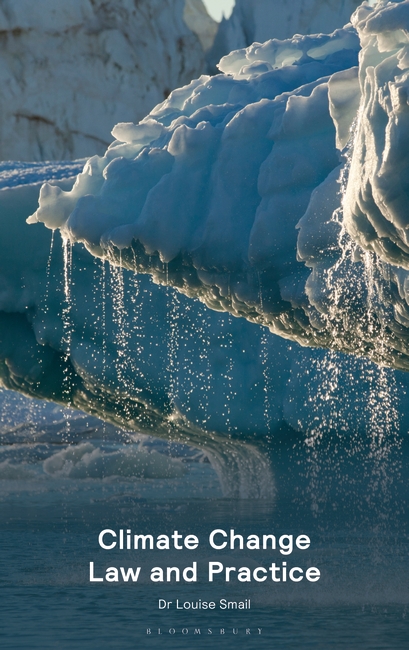The Long, Long, Long Arm of Climate Change Law
by Dr Louise Smail
The Long, Long, Long Arm of Climate Change Law
Climate change law is far-reaching and has implications about how environmental issues are managed. One case that demonstrates this is the Urgenda Foundation v. State of the Netherlands. This was initiated by the Urgenda Foundation, a Dutch environmental group, along with 900 Dutch citizens, against the Dutch government. They argued that the government was not doing enough to prevent dangerous climate change, thereby endangering the human rights of Dutch citizens as set by national and European Union laws.
In 2015, the Hague District Court ruled in favor of Urgenda, and ordered the Dutch government to reduce greenhouse gas emissions by at least 25% below 1990 levels by 2020. The court found that the government's existing pledge to reduce emissions by 17% would be insufficient to meet the state's fair contribution toward the UN goal of keeping global temperature increases within two degrees Celsius of pre-industrial conditions.
The Dutch government appealed the decision, but in 2018, the Hague Court of Appeal upheld the District Court's ruling. The court concluded that by failing to reduce greenhouse gas emissions by at least 25% by the end of 2020, the Dutch government was acting unlawfully in contravention of its duty of care under Articles 2 and 8 of the European Convention on Human Rights (ECHR). These articles protect the right to life and the right to private life, family life, home, and correspondence.
This case set a precedent as the first decision by any court in the world ordering states to limit greenhouse gas emissions for reasons other than statutory mandates. It highlighted the legal obligation of governments to act against climate change to protect their citizens' human rights.
After the final ruling by the Dutch Supreme Court on December 20, 2019, the Dutch government acknowledged its obligation to urgently and significantly reduce greenhouse gas emissions in line with its human rights obligations. The Supreme Court upheld the previous decisions, emphasising that the government must take immediate and effective action to meet the required reduction targets.
In response, the Dutch government committed to implementing measures to comply with the court's mandate. This included accelerating the closure of coal-fired power plants, increasing investments in renewable energy, and enhancing energy efficiency programs. The ruling also had a wider impact and inspired similar climate litigation cases in other countries, reinforcing the legal duty of governments to address climate change to protect their citizens' human rights.
The case of Urgenda Foundation v. State of the Netherlands is landmark litigation that has significant implications for climate change law and international environmental governance.
First Successful Lawsuit Against a Government for Climate Action: Urgenda filed the lawsuit in 2013 to compel the Dutch government to take stronger action to reduce greenhouse gas emissions. In 2015, the Court of The Hague ruled in favor of Urgenda, establishing that the government had a legal obligation to reduce emissions to protect its citizens from the impacts of climate change.
Recognition of Human Rights: The court based its decision on human rights obligations, particularly citing the European Convention on Human Rights, which includes the right to life (Article 2) and the right to private and family life (Article 8). The ruling emphasized that by failing to mitigate climate change, the government was violating its obligations to protect citizens' rights.
Setting a Legal Precedent: This case set a significant legal precedent in environmental law, demonstrating that courts could impose obligations on governments to act against climate change 10. It established that states can be held accountable for inadequate climate policies that endanger public health and safety.
Increased Judicial Engagement in Environmental Issues: The Urgenda case exemplifies a growing trend of judicial intervention in climate issues, reinforcing the idea that individuals and organizations can seek legal remedies when governments fail to fulfil their climate commitments. It prompted similar lawsuits in other jurisdictions, often referred to as "climate litigation," where citizens and environmental groups challenge government inaction on climate issues.
International Influence: The Urgenda ruling has inspired activists and legal practitioners across the globe. Following its publication, many countries have seen similar cases brought before their courts, including in countries like Germany, France, and the United States. The rulings in these cases often reference Urgenda, thereby amplifying its influence on international climate litigation.
Enhanced Policy Pressure: In the wake of the ruling, the Dutch government was ordered to achieve a reduction of greenhouse gas emissions of at least 25% by 2020 compared to 1990 levels. This decision forced the government to reassess its climate policy and prioritize actions against climate change, showcasing the power of the judiciary in driving policy change.
Public Awareness and Engagement: The publicity surrounding the case raised awareness about climate change in the Netherlands and beyond. It prompted public discourse about the responsibility of governments to protect citizens from climate-related harm
Collaboration Between Civil Society and Legal Systems: The case highlighted the role of civil society in engaging with legal systems to advocate for climate justice. It serves as a model for how environmental organisations can effectively use litigation as a tool for change.
Conclusion
The Urgenda Foundation v. State of the Netherlands case is a moment in climate change law where a successful legal strategy linked human rights with environmental protection. Its impact resonates influencing legal frameworks, inspiring advocacy, and reshaping the governance of climate change in the international arena.
Dr Louise Smail is the author of a number of environmental law books published by Bloomsbury Professional. Her new book, Climate Change Law and Practice, is available 05 June 2025.

